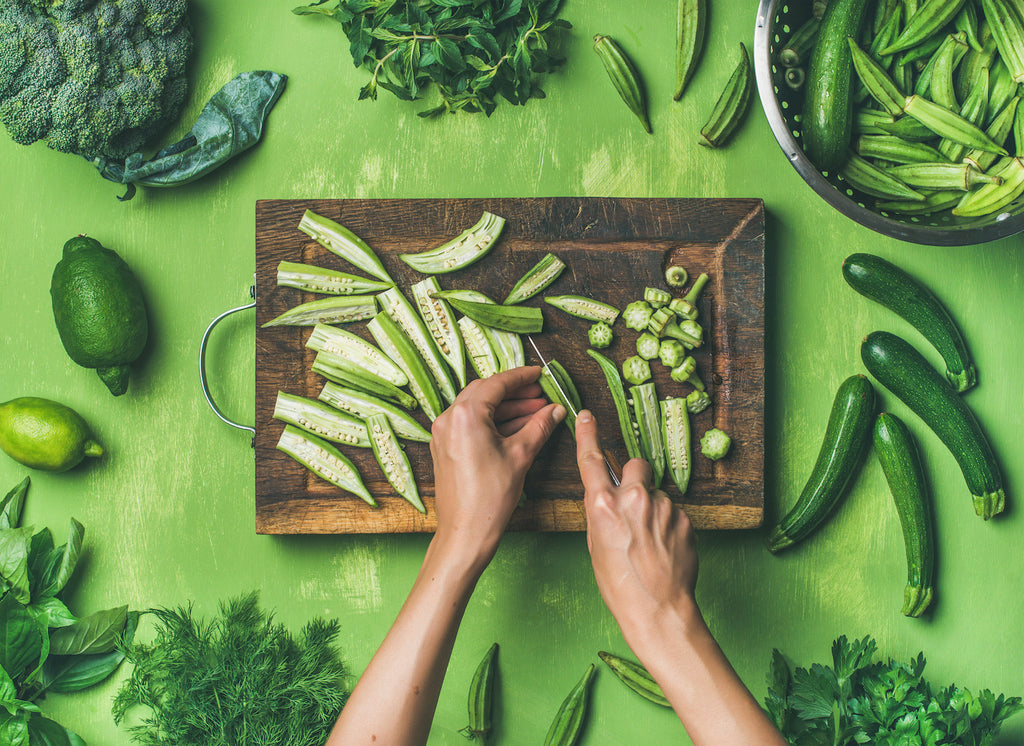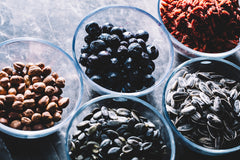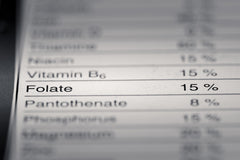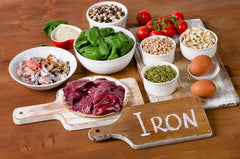Carmela Pengelly is a dietary therapist and nutritional therapist, trained in the UK.
She now lives in Perth, Western Australia, where she practices as a nutritionist, specializing in SIBO (small intestinal bacterial overgrowth), methylation issues, and vegan/vegetarian diets. She also offers consultations outside of Australia, via Skype.
Vegan and vegetarian diets have grown massively in popularity in recent years. The number of vegans in the UK has grown by 350% in the last decade, according to the UK Vegan Society, and around 1.68 million people are now either vegan or vegetarian.
Going meat-free is certainly kinder to animals and kinder to our planet, but how good is it for you and what are the potential health hazards of such diets? In today’s article, we’ll explore some of the misconceptions about these dietary decisions as well as the very real potential vitamin and mineral deficiencies that might impact your body, and how to address them.
Just Rabbit Food?
First, let’s define what true vegan and vegetarian diets are.
My daughter is vegan and we have many conversations starting with: “But is it vegan?”. The basic tenet is that vegans do not eat any animal or any animal-derived product. Most obviously, this excludes meat, fish, dairy, and eggs.

It then gets more complicated when you have to eliminate less obvious ingredients from foods e.g honey (some vegans do eat) and gelatin (that cuts out lots of sweets and desserts).
Essential staples include legumes (beans and lentils), tofu, nuts, seeds and lots of vegetables.
Vegetarianism In A Nutshell
The vegetarian diet is similar but typically includes dairy and eggs. This makes it easier to get most of the nutrients necessary for a healthy diet.
What’s Good About Vegan/Vegetarian Eating?
We are designed to eat a predominantly plant-based diet – this is where most of our micronutrients and beneficial phytochemicals come from.
Vegans and vegetarians just take it that one step further by eliminating meat and fish altogether.
There is plenty of evidence supporting the health benefits of these diets. Here are some that researchers have discovered so far:
- Reduces risk of type 2 diabetes.
- Reduces likelihood of obesity.
- Lowers risk of cancer.
- Lowers death rates compared with meat eaters.
- Cuts the risk of cardiovascular disease by two thirds.
- Lowers cholesterol, particularly the less desirable LDL cholesterol.
- Lowers blood pressure.
- Improves gut health by promoting the growth of good bacteria.
5 Common Pitfalls You Should Watch Out For
The pitfalls of vegan and vegetarian eating are not just missing nutrients. You can suffer health problems from ‘anti-nutrients’ in plant foods. Anti-nutrients are natural chemicals in food that negatively impact your health.
- B12 Danger
Lack of vitamin B12is a major health concern among vegans and some vegetarians. Severe deficiency can be permanently damaging.
The truth is that it is virtually impossible to get this essential vitamin from non-animal sources. It exists in seaweed and other vegetables, but these do not provide reliable sources and generally only contain inactive forms of B12 that we can’t use.
Vegetarians can obtain reasonable amounts of B12 from dairy and eggs.
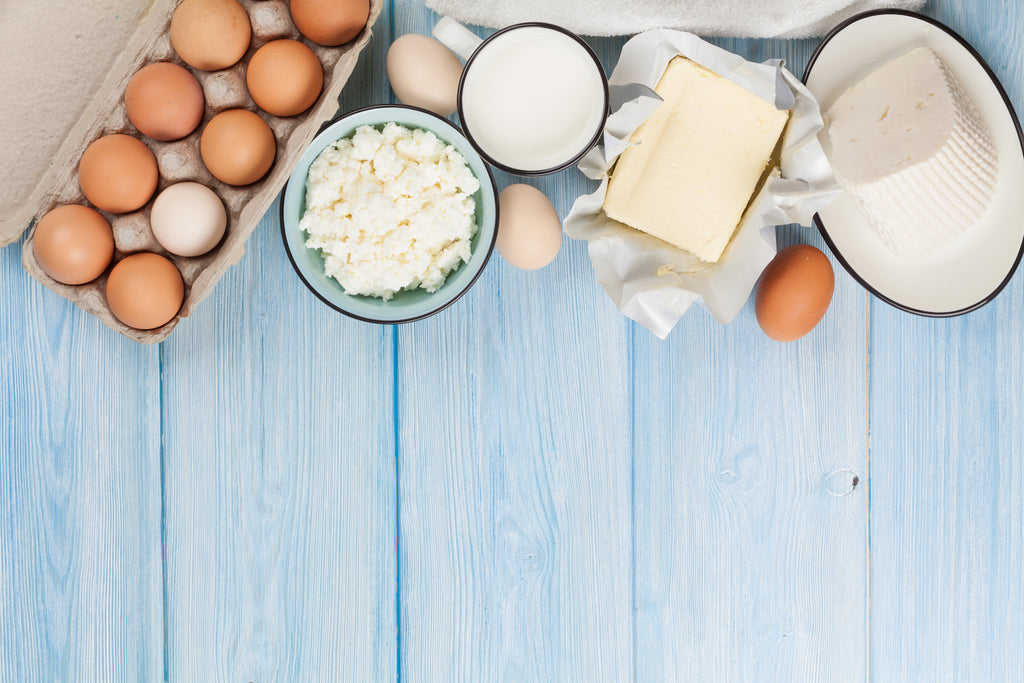
B12 deficiency does not become immediately apparent as we only use tiny amounts and our stores can last several years.
Low B12 levels often go unnoticed and standard GP tests for this vitamin are not sensitive enough to detect mild deficiencies.
|
Signs and Symptoms Of B12 Deficiency |
|
|
Anaemia |
Fatigue and weakness |
|
A smooth and/or sore tongue and mouth |
Nerve problems – tingling and muscle weakness. Brain damage in children |
|
Inability to absorb nutrients in the gut |
Pale skin |
Some vegans rely on nutritional yeast to provide their B12. While this can be a good source of other B vitamins, it doesn’t naturally contain B12. It is added to some nutritional yeast products so check the label first before buying.
I would strongly recommend that vegans take a B12 supplement such as Nu U Nutrition Vitamin B12 every day, especially pregnant women and breastfeeding mothers. This vitamin is crucial for normal growth and development in foetus and children. Research has discovered that over 60% of pregnant women who are vegan or vegetarian are deficient.
Testing
Doctors generally test for B12 by directly measuring levels in blood. These tests tend to only detect severe deficiency.
A more accurate test measures a substance called methylmelonic acid (MMA). MMA is a good reflection of actual B12 status in the body as it rises when B12 levels drop.
- Incomplete Proteins
It’s a common misconception that plant-based diets lack protein. You can get all the protein you need but you should plan your meals carefully to make sure you’re getting the right balance of amino acids.
Amino acids are known as the building blocks of protein and are needed to make enzymes, muscle, certain hormones, tissues and organs in the body.
There is a core group of amino acids we can’t make ourselves and have to get from diet. Whereas animal products tend to contain a complete range of these essential amino acids, plant foods have a more variable profile. For example, beans are low in the amino acid, methionine, but high in lysine. Rice is the other way around - low in lysine but high in methionine.
Food Combining
This is where food combining comes in. The classic rice and bean combo is ideal as it will provide you with enough methionine and lysine plus all the other essential amino acids you need.
I don’t often recommend grains, but they are a useful addition to a legume dishes to help you get a complete protein meal. A good example is Mexican beans served in a wheat or rye wrap.

Tofu and quinoa both contain complete proteins. So, if you’re in a hurry, a tofu or quinoa-based meal will help you get all the protein you need.
Nuts and seeds can be a useful addition to your diet and help to supplement your amino acid intake.
|
How Much Protein Are You Getting? |
|
|
Food |
How Much Protein? |
|
1 serving vegan protein powder |
24 g |
|
100 g tofu |
16 g |
|
120 g cooked black beans |
10 g |
|
½ 420 g can of baked beans |
10 g |
|
1 cup cooked white pasta |
8 g |
|
AS A GENERAL RULE YOU NEED 1 G OF PROTEIN FOR EVERY KG THAT YOU WEIGH |
|
If you are vegetarian and consume eggs and dairy, you will be getting complete proteins from these foods.
- Little-Known Lysine
We need to get lysine from our dietand vegan and vegetarian diets are typically low in this essential amino acid.
Lysine is often associated with its ability to zap cold sores, but its very important role in our overall health is underestimated.
What Do We Need Lysine For?
Lysine plays a part in many biochemical processes, including:
- Aiding calcium absorption into the bones
- Helping with absorption of iron
- Helping to make energy
- Helping to make collagen for healthy connective tissue (bones, skin, tendons, etc.)
- Reducing the occurrence and severity of cold sores and genital herpes
- Aiding hormone production
- Aiding antibody production
If you are feeling tired, suffer chronic anaemia and get sick a lot it could be that you are low in lysine. The most obvious sign is that you have frequent cold sores.
The best vegan sources of lysine are soybean products (tofu, tempeh, soy milk), quinoa, lentils and vegan protein powder.
If you’re not a fan of these foods and don’t eat them regularly, you might want to consider taking a daily lysine supplement such as Nu U Nutrition L-Lysine.
It’s also particularly important to ensure that children on plant-based diets have adequate lysine to meet the demands of their growing bodies.
- The Truth About Omega 3
Omega-3 fatty acids are essential to health and longevity and, among their many benefits, are key to regulating inflammatory processes in the body.
It is a bit of a myth that you can obtain all the omega-3 you need from flaxseed oil.
Omega-3 fats are a family of fatty acids. Flaxseed oil, chia seed oil and walnut oil mainly provide the omega 3 fatty acid, ALA (alpha-linolenic acid). Fish oils provide EPA (eicosapentaenoic acid) and DHA (docosahexaenoic acid).

It is possible to convert ALA into EPA and then into DHA. However, this is quite difficult for the body to do and depends on many factors, such as availability of B vitamins, your age and your genetic make-up.
Generally, most people can only convert between 8 and 21% of ALA to EPA and just 0.5 to 9% of ALA to DHA.
The best way to ensure you’re getting enough EPA and DHA is to take omega-3 supplements made from algae.
- Mineral Misery
Mineral deficiencyis often seen in both vegans and vegetarians, and high intakes of phytic acid and oxalic acid are often to blame.
What Is Phytic Acid?
Plant foods, particularly legumes and grains, contain high amounts of phytic acid (phytates). Moderate amounts can be good for you as they are known for their antioxidant and cancer-fighting properties.
However, in large amounts they become antinutrients because they bind with minerals in the gut, inhibiting their absorption. Because vegans and vegetarians rely so heavily on these foods, mineral deficiencies can result.
Minerals affected include iron, zinc, calcium, magnesium and manganese.
The best way to reduce phytates in your food is to soak legumes for at least 12 hours in an acidic medium, such as water with vinegar or lemon juice added.
Phytates are often high in commercial breads as they generally haven’t been prepared in the traditional way. Choose sourdough bread as the fermentation process used lowers phytic acid.
Rye bread is also a good choice as it contains high amounts of phytase, an enzyme which breaks down phytates.
Vegans and vegetarians sometimes fall into the trap of eating a lot oats either in porridge or in baked goods. These are particularly high in phytates. To get around this, always soak porridge oats the night before in vinegar or lemon juice. Rinse well before cooking. You can also add a little rye flour to help reduce the phytate content.
What Is Oxalic Acid?
Oxalic acid (oxalate) is an antinutrient found in plant foods. Like phytic acid, oxalic acid can bind with minerals, preventing their absorption.
Foods high in oxalates include green leafy vegetables, tea, cocoa, and rhubarb. Oxalic acid really only becomes a problem for vegans and vegetarians if they are eating a lot of raw plant foods. Cooking will help to reduce oxalate levels.
The main risk of high oxalic acid intake in vegans and vegetarians is low calcium absorption.
Oxalic acid also causes kidney stones, but, paradoxically, vegans and vegetarians are less likely to suffer kidney stones than meat eaters.
Iron
While antinutrients bind with iron, you can also suffer deficiency of this mineral because it exists in a less bioavailable ‘non-heme’ form in plant foods. Animal products contain the heme version, which is taken up by the body very easily.
We can only absorb around 5-12% of iron from plant foods. For example, 1 cup of cooked lentils contains around 6.6 mg of iron, but you would only absorb a maximum of 0.8 mg. The average daily requirement for an adult is between 18 mg and 20 mg.
|
Best Plant Sources of Iron |
|
|
Lentils |
Chickpeas |
|
Beans |
Tofu |
|
Seeds |
Dried fruit |
We can improve our iron absorption by consuming vitamin C-rich foods at the same time. As well as fruit, vitamin C can be found in vegetables like cauliflower, broccoli, and capsicums.
|
Core Daily Vegan/Vegetarian Supplement Plan |
|
|
Nutrient |
How Much? (Average Adult) |
|
B12 |
At least 2.5 micrograms |
|
Lysine |
1-2 g |
|
Algae-sourced omega 3 |
Should contain at least 250 mg of DHA and 125 mg of EPA |
|
Iron (get your doctor to test your levels first) |
15-25 mg |
A good option if you do find yourself in need of an iron supplement and have consulted a doctor is Nu U Nutrition Multivitamins and Mineral All in One formula.
A plant-based diet offers a number of potential benefits to your short and long-term health, but if you are preparing to transition or are experiencing any of the symptoms of vitamin or mineral deficiency, it’s a serious matter. Consult with a doctor who understands the benefits and potential pitfalls of your new diet and can help you measure key nutrients and supplement them when needed. To learn more about supplements referenced in this article, click any of the links below.
- Nu U Nutrition Multivitamins and Mineral All in One Formula
- Nu U Nutrition Flaxseed Oil Capsules, 1000mg
- Nu U Nutrition L-Lysine 1000mg
- Nu U Nutrition Vitamin B12 1000mcg

